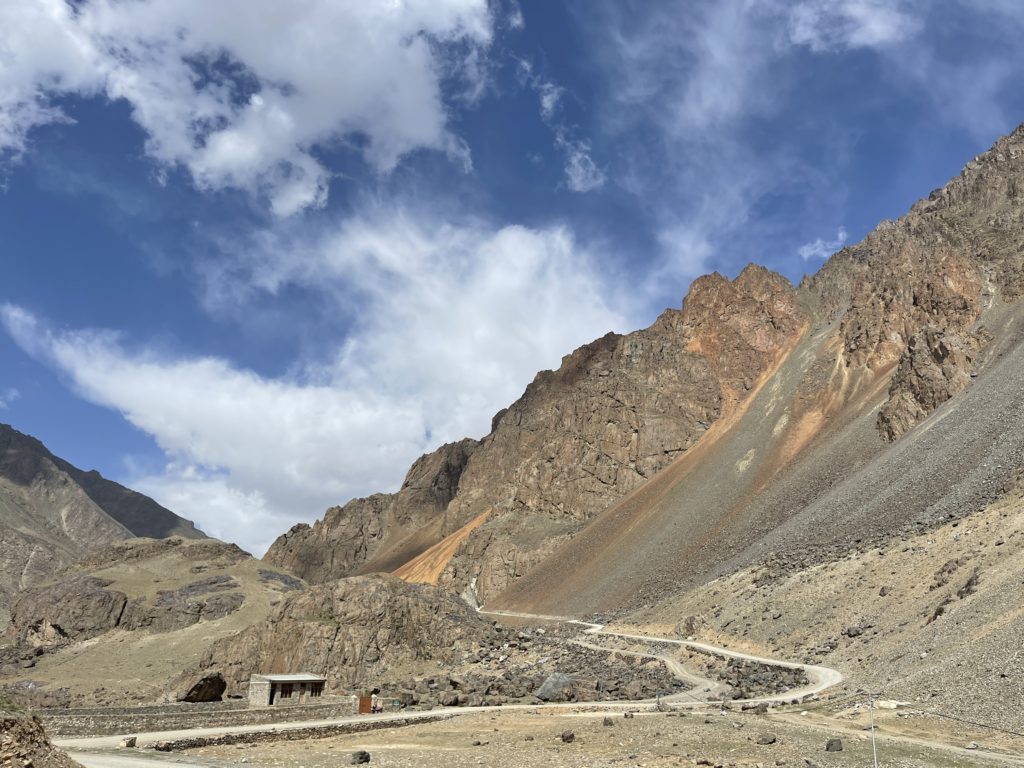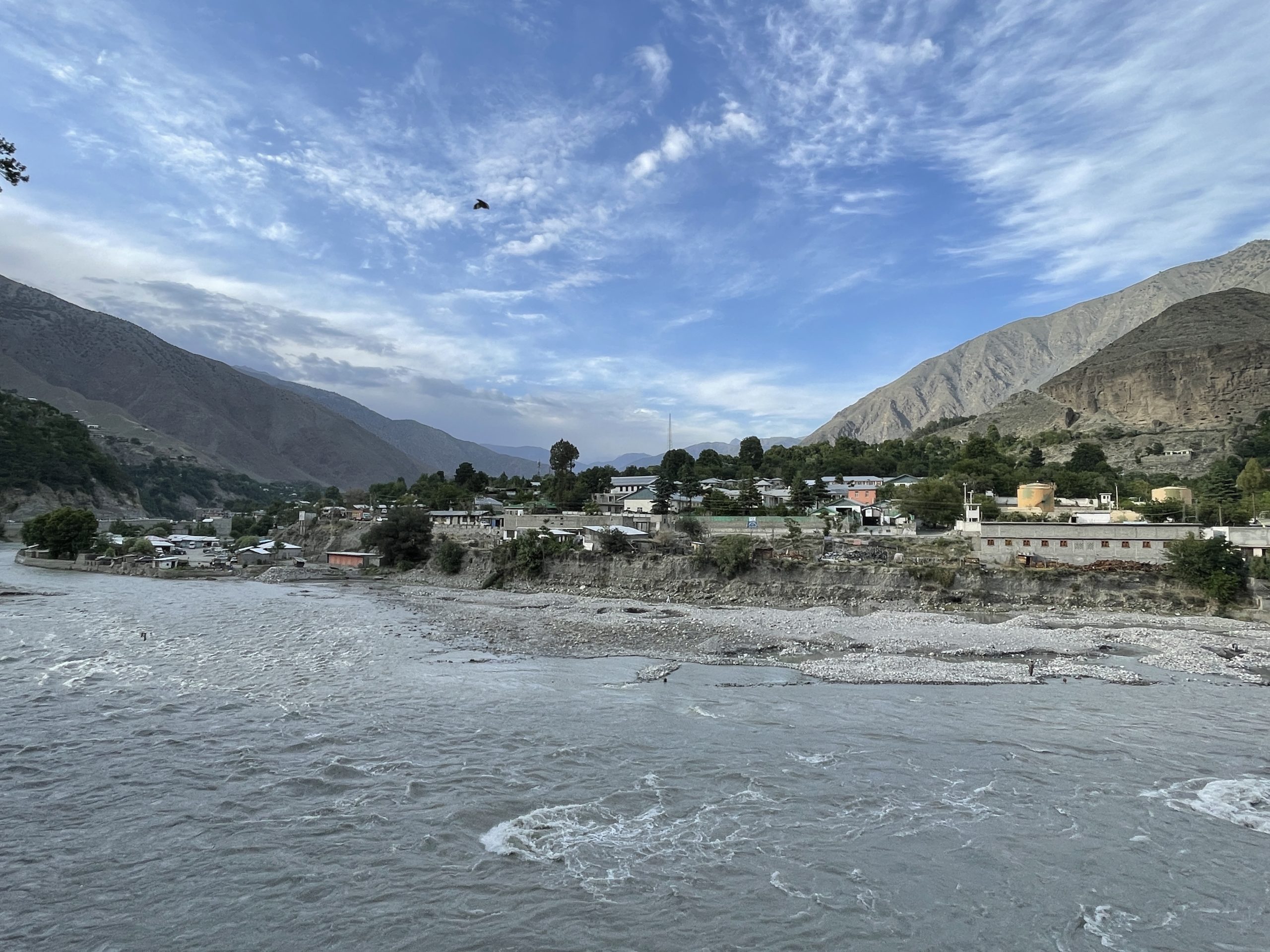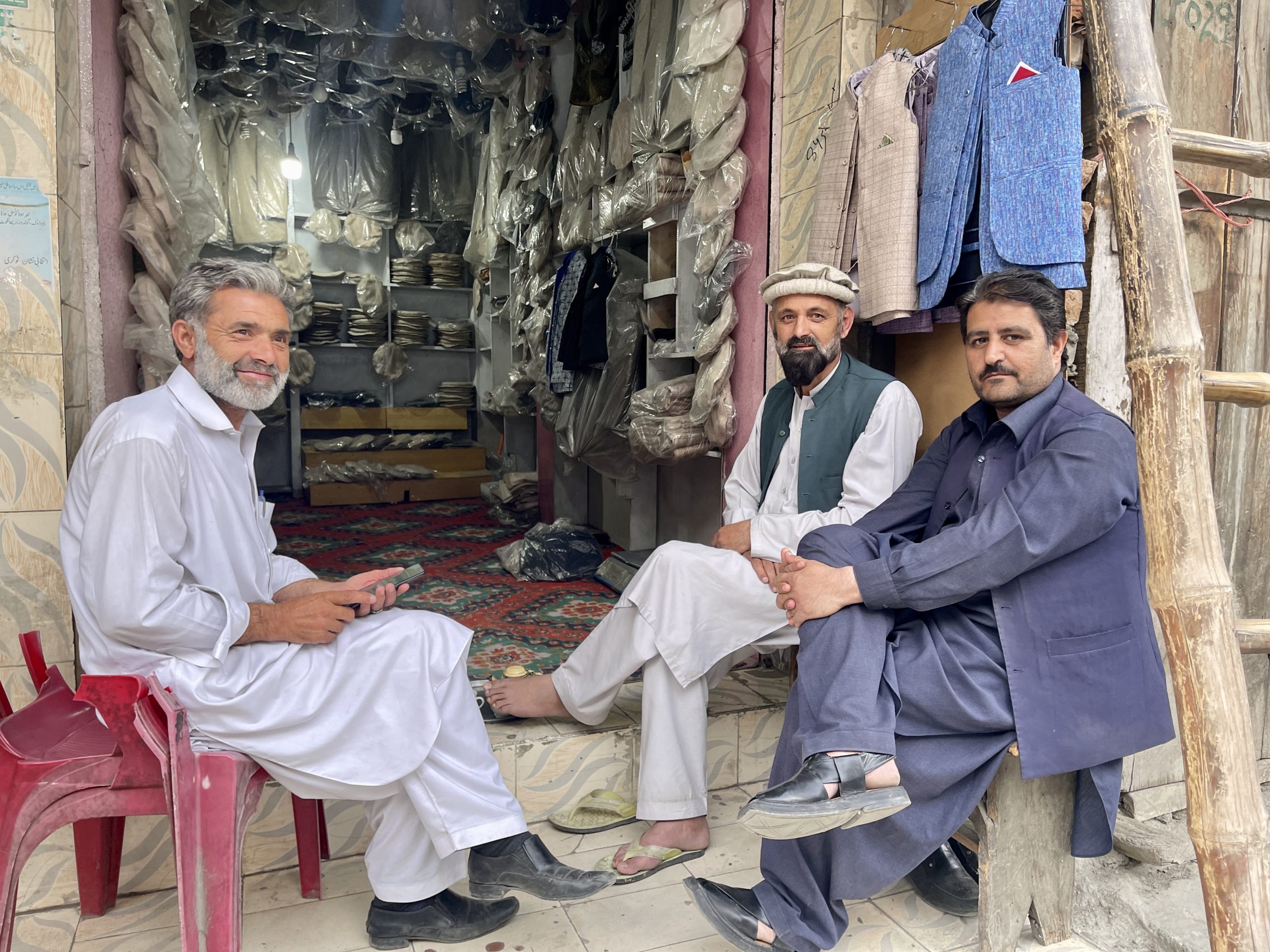Saying farewell to the Hunza, we returned to Gilgit after stopping to load up with some cherries from the tree in Saaed’s cousins garden. Gilgit was a bustling metropolis compared to Hunza and the bazaar was in full swing. We stopped to take more photocopies of our passports for the multiple checkpoints we would encounter en route to Chitral with stops at Phander and Mastuj to break up the long days driving. It is one of the great road trips of Asia – heading over the Shandur pass, and I was very much lookig forward tot he landscape
Buddha in Pakistan
We detoured near Gilgit to see the Kargah Buddha – impressively carved in the side of the mountain. The highlight of the visit was a crew of young guys who were determined to have Steph take a glamorous headshot of each of them.










Camels, Weddings and Pulleys
The road from Gilgit to Phander is well trafficked, half paved with lots of potholes. It follows the Gilgit river up the Hindu Kush. Much of it was spectacular – particularly around Gupis – but it was tough going. We stopped in Henzal at a very grubby truck stop for lunch and I didn’t fancy the chicken kebabs which were piled high half precooked and covered in flies – didn’t look particularly hygienic. I opted for a greasy omelette and chapati. (Truck traffic is pretty slow these days as the Chinese border is still closed for covid, so food turnover at the truck stops is not high). We stopped again in Gahkuch. I had asked for a pee stop and so Saaed found us a nice hotel with a washroom. So we had to have tea. So a pee break takes 45 mins and makes me want to pee again. I learnt to ask for a photo stop and then find a rock – much more efficient :-).
The road is dusty! Really dusty. I had wondered why so many people were wearing masks. No one is remotely bothered about covid but the widespread mask availability has been a boon for those who don’t want to inhale the road dust. The road is also a big game of chicken. Driving is no problem on a wide road, or an entirely gravel road – chicken kicks in when the road (like from gilgit) is half asphalt – about wide enough for 1.5 cars – and half rocky gravel. No one wants to put their left wheel in the gravel so they accelerate towards each other and try to hold on to the asphalt. Inevitably both drivers have to slam on the brakes, swerve and they both end up with one wheel in the dirt. Even Saaed our very zen driver can’t resist the temptation every time and the last minute braking wears thin after many hours in the 4wd
We did stop to experiment with one of the many pulley systems the locals use to pull themselves and their gear across the river. Saaed was lucky there was a kid with him as he got stuck half way back. We also met a camel man who was walking from Lahore to Peshawar selling milk. Our highlight was stopping to chat to a wedding party (we actually passed three). The women had a chat to me from the back of the car. They are very joyous occasions.





The rest of the road was bumpy but spectacular- meandering through tiny villages with pretty painted houses and passing through sheer red rock gorges along the Gilgit river





Pausing in Phander
We bumped into Phander as the sun set after 10 hours on the road and met the lovely owner from the Hilltop Hotel. What the hotel lacked in soundproofing and hot water it made up for in innovative coloured lighting tubes on the ceiling. We had fried river fish and vegetables for dinner and went to bed. Apparently the govt workers in the other room had a dance party until midnight but I didn’t hear it, I did hear the vigorous nose and throat clearing at 7am
I got up early for a stroll – passing lots of kids going to school, women taking the cows to graze and men making bricks. The view from the top of the hill was lovely down over the Phandur valley.
After breakfast of omelette and chapatis we headed out, stopping often to take photos. The road today is much easier as while very rough and bumpy, it is less trafficked and we are in less of a hurry. It is also entirely gravel so no need for games or chicken with the few cars coming the other way









Scaling the Shandur Pass
The road up through Shandur pass was spectacular. Beautiful red and green riverine valleys with increasingly steep sides up to Tero (home of Tero Rest House – which made us giggle). From the check point at Barset you pass through a high flat valley with beautiful ridgelines along each side – no trees but lots of grazing animals. The road is closed in winter and pretty bumpy in the summer










We stopped for lunch at a small shack in Shandur. Omelette, chickpeas, tea and paratha. Kausar and Steph entertained themselves taking atmospheric photos of Saaed smoking. The cook was most amused. Shandur pass is the highest polo ground in the world – home of fierce battles between Gilgit and Chitral, but a literal killer for the horses given the ferocity of the game and the lack of oxygen.










Onwards to Mastuj
The descent to Sor Laspur was very steep and I was immensely grateful the only oncoming traffic we met were a mad German couple cycling up the hill with all their gear. It’s narrow and would involve a lot of reversing and manoeuvring to get passed anyone. The views over Sor Laspur were incredible
The road from Harchin to Mastuj sidled along a steep c.600m high scree slope for about 15km with stomach wrenching drop offs to the river below. You had to keep your left eye on the steep drop off as the road fell away from time to time and your right eye firmly uphill to avoid any landslides (we saw a few). Saaed was careful and I was delighted to get to Mastuj. We are staying in a very peaceful guesthouse – the Noor Mahal – with excellent wifi, so spent the late afternoon in the garden enjoying the sun and catching up on the blog and email. The rooms were basic and I am not sure how often the linens are changed – but the showers were hot and the roses were beautifully tended. The lovely staff served us more excellent fish and daal, and wonderful naan from the fresh tandoor around the corner







Meandering around Mastuj
After paratha and omelette (our breakfast staple – we always get asked what we want for breakfast so we always ask what they have. The response is always omelette or fried egg, chapati (or paratha), jam, coffee or tea. We wandered around chatting to the local men. We didn’t see any women in town as it was a largely Sunni village. Ismaili women tend to be a little more out in society and they mostly smile back when I wave at them (hence I have dubbed them smiley Ismailis – rhymes perfectly). Sunni women in Pakistan are a lot less friendly to foreigners in passing. Looking at the women is pretty much how I figure out the dominant religion in a village – the guys all look the same, Sunni women are less visible and more veiled (this was confirmed by our guide). We took lots of photos of the local men. It is extremely rude in these parts to point the camera, but very well received if you have a chat for a few minutes, ask to take a photo and then show them the photo. This only works for men, women are mostly off limits though sometimes they are happy to have a photo taken with me. Our favourite photo this morning was a lovely old gent with kind eyes who said we could take his photo ‘but, don’t show it to anyone in America as they will think I am osama bin laden and come and kill me’













Cruising to Chitral
We had been warned that the road to Chitral was under construction so the drive may take five hours. We made good time until just before Booni and then we’re stuck for 30 minutes in a queue waiting for works to halt so we got out and enjoyed the dust with the locals. No one was cross or agitated with an unspecified wait – my fellow Londoners would be less zen with road works. I had taken the left over hot water from breakfast in my swell thermos so made a cup of coffee (carrying coffee, a spoon, thermos and collapsible cup is probably not in keeping with the ultra light packing of my younger days, but it is nice to always be able to have a brew – and it all still fits in carryon)








We arrived at the Booni checkpoint at 11 and then lost an hour as Saaed and Kausar decided we should detour for ‘10 minutes’ to see Qaqlasht meadows. They got lost and took a wrong turn and ignored Stephane when he tried to set them right with Google maps. We eventually got there after almost an hour – and I am sure is lovely in the spring but in June it was just a dry dusty bowl with an ok view of the valley. So after a wasted hour we continued on the way to Chitral where I was excited about the posh hotel we were staying in – owned by a local prince.
With the aid of downloaded maps on stephs phone we shaved 30 mins off the journey to the hotel as we found a bridge that Kausar and Saaed didn’t think we could cross – and we arrived at the hotel at around 2.30 (5.5 hours after leaving Mastuj for a three hour drive). We had sort of missed booking lunch and they had cooked the buffet to order for the five guests they had. Fortunately, they let us clean up the leftovers at the buffet and we ate most of the fresh cherries on offer. we then did our laundry and had long almost hot showers and enjoyed the views down over chitral from our enormous suite.
The sites of Chitral
As the day cooled we headed down to check out the sites – the mosque was lovely but hard to photograph as the electric company had installed pylons in front of the domes. We snuck into the chitral fort (officially closed to the public) and had a look around. I loved the orange colour.










Chitral shopkeepers and trucks
Next up the bazaar where we met some lovely shop keepers and had tea. And then we mostly fan-Ed out on the trucks. I am quite smitten. The only weird thing about chitral was how few women we saw. Few Pakistani women outside of the middle classes work. There are lots of girls schools but you literally see no women working in commerce (you do in the fields) . They don’t even really get out in the more Sunni towns and villages to buy groceries – the men do it. I can never quite fathom why a culture would decide not to use half of their intellectual capacity and workforce…… seems a bit bonkers to me.













Staying with royalty
Dinner was lovely (when it arrived half an hour late – the entire hospitality industry here is consistent in its lateness – from posh to downmarket places). Delicious soup, naan, curry, kebab and salad all fresh from their garden, followed by an exceptional crème caramel. We also met the Prince of chitral and his wife who own the place. I complimented him on the wonder of Pakistan’s mountains, and said I felt disloyal to NZ to say such a thing. He complimented me on Jacinda – the NZ prime minister. I mentioned she wa a lot less popular these days in NZ – so he offered to swap her for the mountains ‘the mountains can’t govern our country but she could!’
After a delightful sleep with the door open for the breeze, I was up early so they delivered coffee to the room. Breakfast was fresh cherries and apricots, home made cereals, marmalade, parathas and brown bread, and it was delicious – I scoffed my face. Next up …. We are up the remote Kalash valleys …. More on that later
Chitral, 31 May 2022
You must be logged in to post a comment.